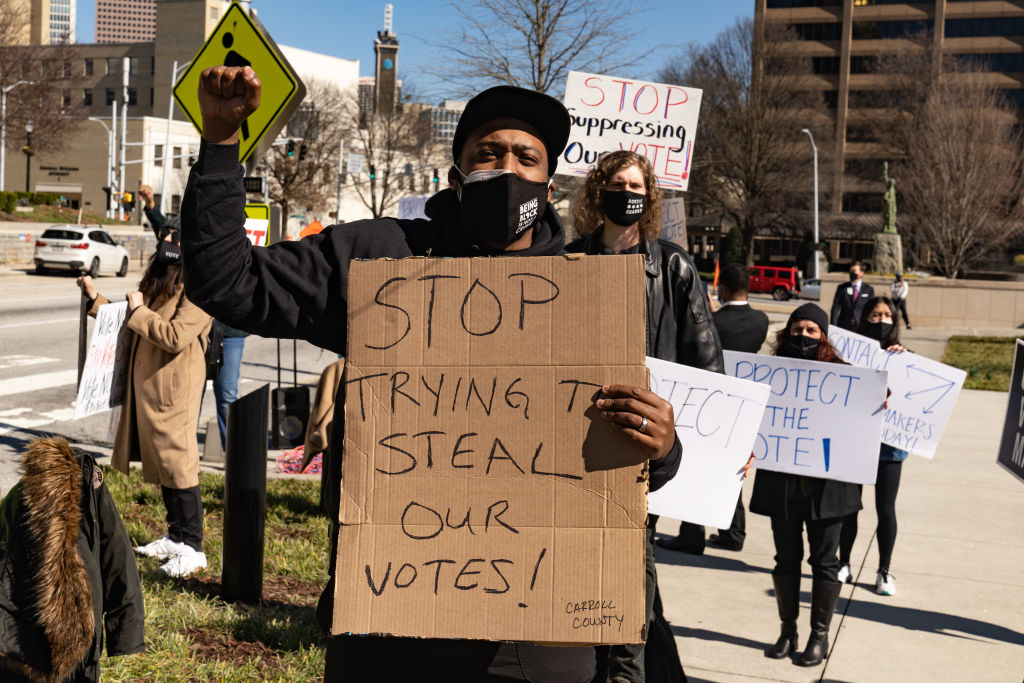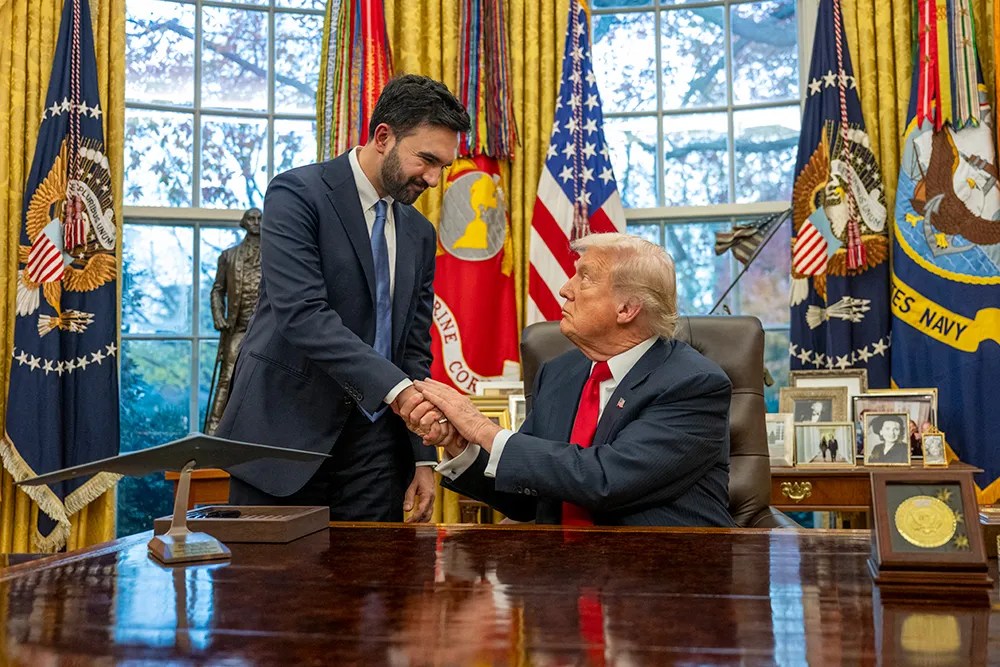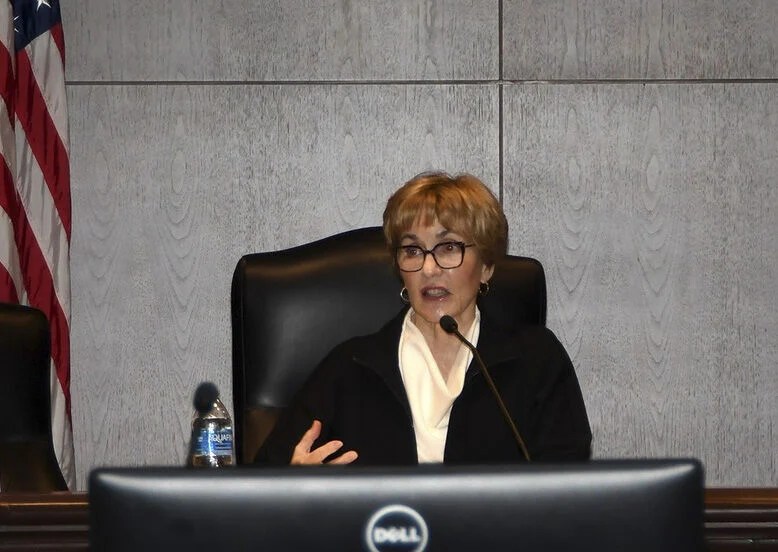A bad start to Biden’s big voting push
The second week in January doesn’t tend to be an especially memorable time. Americans are letting go of a half-hearted New Year’s resolution, contemplating their Christmas credit card bills and finding an excuse not to do their tax return just yet. Insofar as politics penetrates the early-January torpor, it’s likely in relation to the headache of high prices or a Covid-induced classroom closure.
For Joe Biden, however, this week is going to prove “a turning point for this nation.” That is what the president will say in Georgia today. The Peach State will probably have other things on its mind, like the Bulldogs’ first college football national championship since 1980, but Biden is heading to Atlanta to give what the White House is hyping as a major speech on the future of American democracy (translation: a package of federal voting laws).
Biden will use the opportunity to make clear his support for eroding the Senate’s filibuster rule to pass the legislation. He will say he backs “changing the Senate rules to ensure it can work again… Because abuse of what was once a rarely used mechanism that is not in the Constitution has injured the body enormously, and its use to protect extreme attacks on the most basic constitutional right is abhorrent.”
But Biden’s big voting rights push has got off to an inauspicious start. A number of prominent voting-rights advocates are snubbing the speech. Stacey Abrams is missing thanks to a “scheduling clash.” Others have been less polite in explaining their absence. “We’re don’t need any more speeches, we don’t need any more platitudes,” said former Georgia NAACP chief James Woodall in an interview with the New York Times.
In these snubs from the left, Biden is paying for the insincerity of his voting rights rhetoric. If you adopt alarmist language on the rules that govern how America votes — describing red-state laws as Jim Crow on steroids and wondering whether democracy will survive unless your party is in control of Congress and the White House — you cannot complain when those who believe you think you aren’t acting with enough urgency.
The president finds himself in equally predictable trouble with those in his party reluctant to fiddle with the filibuster. For all the focus on Kyrsten Sinema and Joe Manchin, there are other senators who are yet to come around to Biden’s view. Mark Kelly is on the fence. Jon Tester is “not crazy” about a voting rights carve out. Chris Coons is undecided.
Biden seems determined to repeat the mistakes he made in the wrangling over Build Back Better; his voting rights push is heavy on overhyped rhetoric and light on a strategy to actually pass the bills with paper-thin majorities in the House and the Senate.
*** Sign up to receive the DC Diary in your inbox on weekdays ***
Gotcha!
In his own effort to focus minds ahead of a vote on the filibuster that could come as soon as this week, Mitch McConnell has made clear that he would force a vote on a series of GOP-sponsored bills were Democrats to tweak the rules. In what he called the “immediate consequences” of Democratic attempts to “break the Senate,” the minority leader would push for votes on tricky issues from a fracking ban to vaccine mandates.
These gotcha votes will be nothing compared to the laws passed by a future Republican-controlled Senate. Parking for one moment the principled and procedural considerations in the debate around the filibuster, it remains something of a mystery why Democrats seem so sure that scrapping it will work out well for them. After all, if the evils of the filibuster are a major Democratic complaint, so too is the supposed unfairness of the Senate, which they argue skews representation in favor of Republicans. I doubt Democrats will manage to get the votes to scrap or seriously reform the filibuster. I’m much more confident that, were they to do so, they’d soon regret it.
Does Biden support voting for non-citizens?
Where does New York City fit in Joe Biden’s vision for the future of American democracy? The city’s new mayor, Eric Adams, has just waved through a measure that gives non-citizens the right to vote in municipal elections. Does he see the move as something that should be rolled out everywhere? Or just welcome it as local decision-making over who gets to vote and how? If it’s the latter, then that cuts against the logic of the voting laws before the Senate, which would federalize many such decisions.
What you should be reading today
Mary Harrington: Covid and the rise of the Zoom class
Dave Yates: Thanks for the laughs, Bob Saget
Justin Spiro: Remote learning has failed our kids
Damon Linker, the Week: The self-radicalizing logic of conservative intellectuals
Melissa Korn, Wall Street Journal: Yale, Georgetown, other top schools illegally collude to limit student financial aid, lawsuit alleges
Pamela Constable, Washington Post: As harsh winter sets in, Afghans are forced to choose between food and warmth
Poll watch
President Biden Job Approval
Approve: 42.1 percent
Disapprove: 54.8 percent
Net approval: -12.7 (RCP Average)
Unvaccinated Americans who say that Omicron makes them more likely to get a vaccine
In December: 19 percent
In January: 30 percent (Ipsos/Axios)

























